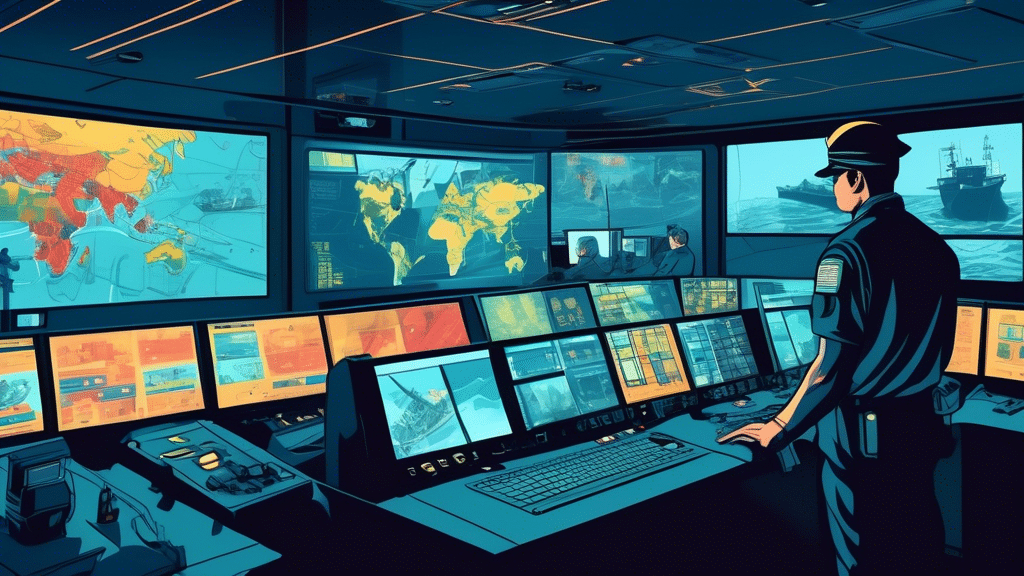The Role of Company Security Officers in Maritime Safety
Maritime safety is a multifaceted discipline that involves a wide array of practices, regulations, and personnel aimed at ensuring the secure operation of maritime vessels and the protection of marine environments. Among the key players in this domain are Company Security Officers (CSOs), whose role is critical in maintaining and enhancing maritime safety standards.
Responsibilities of Company Security Officers
Company Security Officers are tasked with a multitude of responsibilities that contribute to the overall security framework of maritime operations. These responsibilities include:
Risk Assessment and Management
CSOs are primarily responsible for conducting comprehensive risk assessments to identify potential threats to maritime operations. This involves analyzing various risk factors such as piracy, terrorism, smuggling, and environmental hazards. Based on these assessments, CSOs develop and implement risk management strategies to mitigate identified threats.
Implementation of Security Policies
Another crucial duty of CSOs is the development and enforcement of security policies and procedures. These policies ensure compliance with international and national maritime security regulations, such as the International Ship and Port Facility Security (ISPS) Code. CSOs work closely with other maritime stakeholders to integrate these policies into everyday operations effectively.
Coordination and Communication
Effective coordination and communication are vital aspects of a CSO’s role. CSOs liaise with port authorities, ship operators, crew members, and other relevant entities to ensure that security measures are well-understood and correctly implemented. They also ensure that rapid communication channels are established for timely reporting and response to security incidents.
Training and Drills
Training is a cornerstone of maritime safety, and CSOs play a pivotal role in organizing and conducting security training programs for crew members. These programs often include drills and exercises designed to prepare the crew for various emergency scenarios, such as hijacking, fire outbreaks, or evacuation procedures.
The Importance of Adherence to International Standards
Adhering to international standards is not just a legal requirement but a vital practice for enhancing maritime security. CSOs must ensure that their company complies with international standards set by organizations such as the International Maritime Organization (IMO). These standards provide a guideline for developing security plans, conducting audits, and monitoring compliance.
The ISPS Code, for instance, outlines specific measures for the security of ships and port facilities. Compliance with this code is crucial for preventing unlawful acts that could jeopardize the safety of ships, crew, and maritime environments. CSOs play an essential role in maintaining this compliance, thereby contributing to a secure and robust maritime industry.
The Evolving Role of Technology
Technology has become an indispensable tool in the arsenal of CSOs. Modern security systems such as Automatic Identification Systems (AIS), surveillance cameras, intrusion detection systems, and cybersecurity measures enhance the ability to monitor, detect, and respond to potential threats. CSOs must stay abreast of technological advancements and integrate these tools into their security strategies.
Furthermore, the use of data analytics allows CSOs to analyze patterns and trends in security breaches, enabling them to make informed decisions and proactively address vulnerabilities. The integration of technology into security operations not only enhances efficiency but also provides a more comprehensive approach to managing maritime safety.
Challenges Faced by Company Security Officers
Despite their critical role, Company Security Officers face numerous challenges in ensuring maritime safety. These challenges include:
Dynamic and Unpredictable Threats
The maritime environment is subject to dynamic and unpredictable threats that require constant vigilance and adaptability. The emergence of new forms of piracy, cyber threats, and geopolitical tensions necessitates that CSOs continually update their risk assessments and security measures.
Regulatory Compliance
Navigating the complex web of national and international regulations can be daunting. CSOs must ensure that their company adheres to these regulations while also addressing specific security needs unique to their operations. Balancing regulatory compliance with practical security measures requires careful planning and execution.
Resource Constraints
Often, CSOs operate under resource constraints, which can limit their ability to implement comprehensive security measures. Budget limitations, staffing shortages, and limited access to advanced technology can pose significant hurdles. Finding innovative solutions to maximize available resources is an ongoing challenge for CSOs.
Company Security Officers are indispensable to the realm of maritime safety. Their roles encompass risk assessment, policy implementation, coordination, training, adherence to international standards, and the integration of technology. While they face numerous challenges, their expertise and diligence play a pivotal role in safeguarding maritime operations and ensuring a secure marine environment.




